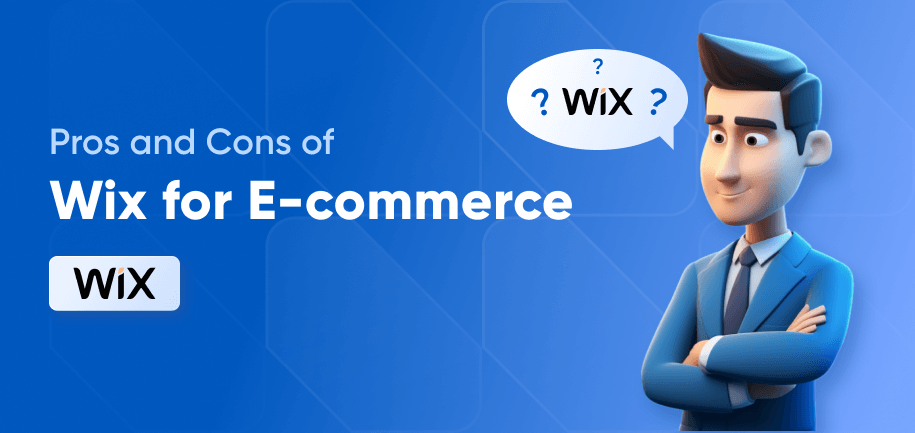Creating an effective online store requires a robust content management system (CMS). With a plethora of options available, choosing the best CMS for your e-commerce needs can be challenging. This comprehensive guide will help you understand what an e-commerce CMS is, what features to look for, and highlight the top 10 e-commerce CMS platforms.
What is an E-commerce CMS?
An e-commerce CMS (Content Management System) is a software application that allows users to build, manage, and modify an online store without needing extensive technical knowledge. It offers tools and features designed to handle digital commerce functionalities like product listings, payment processing, and inventory management.
E-commerce CMS Software Types
There are several types of e-commerce CMS software, each catering to different needs:
- Open Source e-commerce CMS: Free to use and customize, requiring technical expertise. Examples include Magento and WooCommerce.
- Hosted e-commerce CMS: Cloud-based solutions that offer easy setup and maintenance. Examples include Shopify and BigCommerce.
- Headless e-commerce CMS: Provides backend-only functionality, allowing developers to build a custom frontend. Examples include Contentful and Strapi.
E-commerce CMS Features to Look For
When selecting the best CMS for an e-commerce website, consider the following features:
- Ease of Use: The platform should be user-friendly, with an intuitive interface.
- Scalability: It should support the growth of your business, handling increased traffic and product listings.
- Customization Options: Ability to customize design and functionality to meet specific business needs.
- SEO Capabilities: Built-in SEO tools to help improve your search engine ranking.
- Integration Options: Compatibility with third-party tools like payment gateways, CRM, and marketing software.
- Security: Robust security measures to protect customer data and transactions.
-
Customer Support: Reliable support to help resolve issues quickly.
10 Best E-commerce CMS Platforms
Platform | Ease of Use | Customization | SEO Tools | Support | Pricing |
|---|---|---|---|---|---|
Shopify | Very Easy | Limited without code | Built-in SEO tools | 24/7 Support | $29 - $299/month |
WooCommerce | Moderate | Highly Customizable | Good SEO options | Community Support | Free (Hosting & extensions extra) |
Magento | Difficult (Requires expertise) | Highly Customizable | Advanced SEO tools | Community and Paid Support | Free (Open Source), Pricing on request (Commerce) |
BigCommerce | Easy | Moderate | Comprehensive SEO | 24/7 Support | $29 - $299/month |
Wix E-commerce | Very Easy | Limited | Basic SEO tools | 24/7 Support | $17 - $159/month |
Squarespace Commerce | Very Easy | Limited | Basic SEO tools | 24/7 Support | $16 - $52/month |
PrestaShop | Moderate (Requires some expertise) | Highly Customizable | Good SEO options | Community Support | Free (Hosting & extensions extra) |
OpenCart | Easy | Moderate | Basic SEO tools | Community Support | Free (Hosting & extensions extra) |
Joomla with VirtueMart | Moderate (Requires expertise) | Highly Customizable | Good SEO options | Community Support | Free (Hosting & extensions extra) |
Drupal Commerce | Difficult (Requires expertise) | Highly Customizable | Advanced SEO tools | Community Support | Free (Hosting & modules extra) |
1. Shopify
Shopify is one of the most popular hosted e-commerce CMS platforms, known for its ease of use and extensive app ecosystem. It offers a wide range of templates and themes, making it easy for users to create a professional-looking online store without any coding skills. Shopify's robust backend and excellent customer support make it a favorite among small to medium-sized businesses. Additionally, it provides integrated marketing tools like DropinBlog to help you grow your online presence. It’s a tool that provides style matching, an SEO analyzer, and an option of embedding products into blog posts.
Pros and Cons
Pros:
- Easy to use
- Extensive app store
- Reliable customer support
Cons:
- Limited customization without coding
- Transaction fees unless using Shopify Payments
Key Features
- Drag-and-drop store builder
- Mobile-responsive themes
- Built-in SEO and marketing tools
- 24/7 customer support
Pricing
- Basic Plan: $29/month
- Shopify Plan: $79/month
- Advanced Plan: $299/month
2. WooCommerce
WooCommerce is a free, open-source e-commerce CMS built specifically for WordPress websites. It is highly customizable, offering a vast array of extensions and themes to tailor your store to your exact needs. With a large community and extensive documentation, users can find ample support and resources to enhance their online store. WooCommerce is ideal for those already familiar with WordPress who seek a flexible and powerful e-commerce solution.
Pros and Cons
Pros:
- Free and open-source
- Highly customizable
- Large community and support
Cons:
- Requires a WordPress site
- Can be complex for beginners
Key Features
- Seamless integration with WordPress
- Hundreds of free and paid extensions
- Built-in blogging capabilities
- Extensive theme options
Pricing
- Free (additional costs for hosting and extensions)
3. Magento
Magento is a powerful and flexible e-commerce CMS designed for larger businesses and enterprises. Its open-source nature allows for extensive customization and scalability, making it suitable for handling large volumes of products and transactions. Magento's robust feature set includes advanced SEO capabilities, multiple payment and shipping options, and comprehensive inventory management. However, it requires significant technical expertise to set up and maintain, and can be costly for smaller businesses.
Pros and Cons
Pros:
- Highly scalable
- Robust feature set
- Extensive customization
Cons:
- Requires technical expertise
- Can be expensive to maintain
Key Features
- Advanced SEO capabilities
- Multiple payment and shipping options
- Comprehensive inventory management
- Highly customizable with a large extension marketplace
Pricing
- Open Source: Free (costs for hosting and extensions)
- Magento Commerce: Pricing on request
4. BigCommerce
BigCommerce is a hosted e-commerce CMS that combines ease of use with powerful features suitable for both small businesses and large enterprises. It offers a wide range of built-in tools for SEO, marketing, and analytics, allowing users to manage their store effectively. BigCommerce supports multiple sales channels, including social media and marketplaces like Amazon and eBay. Its flexible API makes it easy to integrate with various third-party applications, providing a seamless experience for users.
Pros and Cons
Pros:
- User-friendly interface
- No transaction fees
- Robust built-in features
Cons:
- Limited free themes
- Pricing can be high for advanced features
Key Features
- Comprehensive SEO tools
- Multi-channel selling
- Flexible API for integrations
- 24/7 customer support
Pricing
- Standard Plan: $29/month
- Plus Plan: $79/month
- Pro Plan: $299/month
5. Wix e-commerce
Wix e-commerce is a popular choice for small businesses and individuals looking for an affordable and easy-to-use e-commerce CMS. It offers a range of beautiful templates and a drag-and-drop editor, making it simple to create a professional online store without any coding skills. Wix provides essential e-commerce features such as secure payment options, inventory management, and SEO tools. While it may lack some advanced features, Wix e-commerce is a solid choice for those new to digital commerce.
Pros and Cons
Pros:
- Affordable pricing
- Easy-to-use drag-and-drop editor
- Beautiful templates
Cons:
- Limited scalability
- Fewer advanced features
Key Features
- Secure payment options
- Inventory management
- Built-in SEO tools
- App market for additional functionalities
Pricing
- Light: $17/month
- Core: $29/month
- Business: $36/month
- Business Elite: $159/month
6. Squarespace Commerce
Squarespace Commerce is known for its sleek, designer-quality templates and user-friendly interface. It is a great choice for businesses that prioritize aesthetics and need a straightforward e-commerce solution. Squarespace offers comprehensive e-commerce features, including secure payment processing, inventory management, and marketing tools. While it may not be as customizable as some other platforms, it provides an excellent balance of design and functionality for small to medium-sized businesses.
Pros and Cons
Pros:
- High-quality templates
- Easy to use
- All-in-one platform
Cons:
- Limited customization
- Higher transaction fees on lower plans
Key Features
- Designer templates
- Integrated payment processing
- Inventory and order management
- Built-in marketing tools
Pricing
- Personal: $16/month
- Business: $23/month
- Basic Commerce: $28/month
- Advanced Commerce: $52/month
7. PrestaShop
PrestaShop is an open-source e-commerce CMS that offers a high level of customization and flexibility. It is ideal for businesses with specific requirements that need a tailored solution. PrestaShop provides a wide range of modules and themes to enhance functionality and design. However, like other open-source platforms, it requires technical expertise to set up and maintain, which can be a barrier for smaller businesses without dedicated IT resources.
Pros and Cons
Pros:
- Highly customizable
- Extensive module marketplace
- Strong community support
Cons:
- Requires technical expertise
- Costs can add up with paid modules and themes
Key Features
- Modular architecture
- SEO and marketing tools
- Multi-store management
- Extensive customization options
Pricing
- Free (additional costs for hosting, modules, and themes)
8. OpenCart
OpenCart is a lightweight, open-source e-commerce CMS that is easy to set up and use. It offers a good balance of simplicity and functionality, making it suitable for small to medium-sized businesses. OpenCart comes with a variety of built-in features and an extensive marketplace for additional extensions. However, it may require some technical know-how to fully customize and optimize your store.
Pros and Cons
Pros:
- Easy to use
- Lightweight and fast
- Extensive extension marketplace
Cons:
- Limited built-in features
- Requires technical skills for advanced customization
Key Features
- User-friendly admin interface
- Multiple payment gateways
- SEO and marketing tools
- Extension marketplace
Pricing
- Free (additional costs for hosting and extensions)
9. Joomla with VirtueMart
Joomla is a powerful CMS that, when combined with the VirtueMart extension, becomes a robust e-commerce solution. This combination offers a high level of customization and flexibility, making it suitable for businesses with specific needs. VirtueMart integrates seamlessly with Joomla, providing essential e-commerce features such as product management, payment gateways, and shipping options. However, it requires technical expertise to set up and maintain, and may not be ideal for beginners.
Pros and Cons
Pros:
- Highly customizable
- Extensive feature set
- Strong community support
Cons:
- Requires technical expertise
- Can be complex to set up
Key Features
- Seamless integration with Joomla
- Advanced product management
- Multiple payment and shipping options
- SEO and marketing tools
Pricing
- Free (additional costs for hosting and extensions)
10. Drupal Commerce
Drupal Commerce is a highly flexible and customizable e-commerce CMS built on the Drupal platform. It is ideal for businesses with complex requirements that need a tailored solution. Drupal Commerce offers a comprehensive set of features, including advanced product management, SEO tools, and integration capabilities. However, it requires significant technical expertise to set up and maintain, making it more suitable for larger businesses with dedicated IT resources.
Pros and Cons
Pros:
- Highly customizable
- Robust feature set
- Strong integration capabilities
Cons:
- Requires technical expertise
- High setup and maintenance costs
Key Features
- Advanced product management
- Comprehensive SEO tools
- Integration with third-party applications
- Scalable and flexible architecture
Pricing
- Free (additional costs for hosting and modules)
Bottom Line
Choosing the best CMS for e-commerce depends on your business needs, technical expertise, and budget. Platforms like Shopify and BigCommerce are great for ease of use and comprehensive features, while WooCommerce and Magento offer extensive customization for those with technical skills. It's crucial to evaluate each platform's features, pros and cons, and pricing to find the best fit for your e-commerce website.
Frequently asked questions
Shopify is often considered the fastest CMS for e-commerce due to its optimized hosting environment and efficient infrastructure. It offers quick load times and reliable performance, making it an excellent choice for businesses that prioritize speed.
To choose an e-commerce CMS, consider factors such as ease of use, scalability, customization options, SEO capabilities, integration with third-party tools, security, and customer support. Assess your business needs and technical expertise to find a platform that best fits your requirements.
WooCommerce is one of the most widely used CMS platforms for e-commerce websites, particularly because it integrates seamlessly with WordPress. Its flexibility, customization options, and extensive community support make it a popular choice among online retailers.
Yes, a CMS is essential for managing an e-commerce website as it provides tools to handle product listings, payment processing, inventory management, and more. A CMS simplifies the process of running an online store, allowing you to focus on growing your business.
Magento is often regarded as the best SEO-friendly CMS for e-commerce due to its advanced SEO capabilities and extensive customization options. It offers built-in tools for optimizing product pages, URLs, and metadata, helping improve your search engine rankings.
















